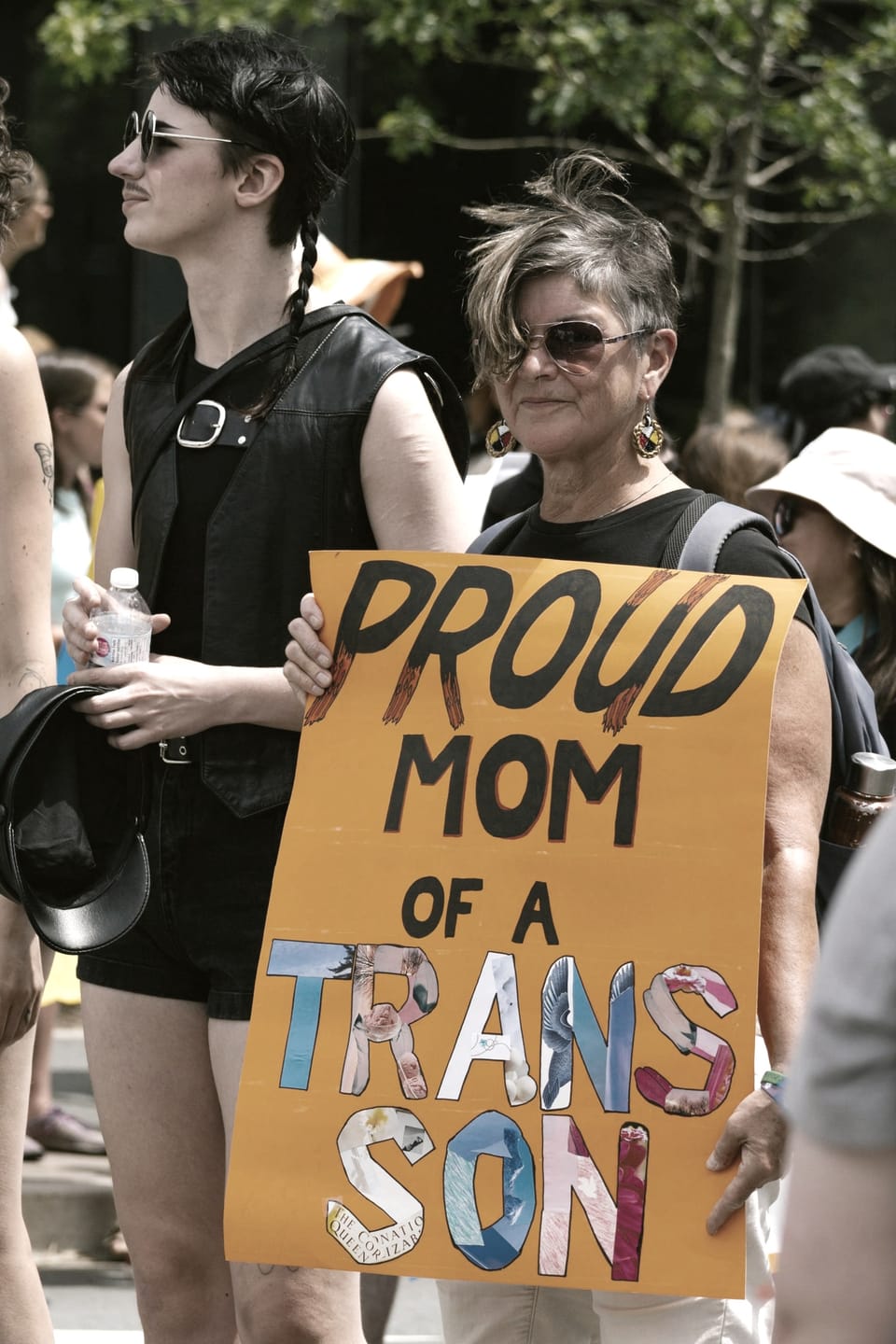The Friendships We Risk Losing
Breakups happen when friends fail to understand trans realities. Can we get these friendships back?

Recently, I saw a huge stack of “Spiced” Coke at the local supermarket. Since I kicked my five-can-a-day Diet Coke habit several years ago, I wasn’t even slightly tempted. But I laughed, thinking of an old friend who would be delighted by Coke’s latest marketing ploy (see also “Twisted Mango,” “Blood Orange,” “Blueberry Acai”). I sent her a pic of the display.
It has been years since Eliza and I talked. Raised in the ’80s, We used to have hours-long phone conversations. When JJ was little, we vacationed in Vermont together: two middle-aged single white ladies on the hunt for attractive yet sensible footwear.
Gender Defiant is reader-supported. Consider a paid subscription to underwrite our work!
Snark
Eliza would find the most perfect presents for JJ. A bag and matching wallet patterned with smiling otters. A box of shark teeth which JJ, only four, promptly took to our bathroom to brush with toothbrush and toothpaste. A friend who loves your kid and speaks to them with humor and respect is rare. A friend you can travel with is priceless.
Eliza and I shared scathing, hilarious commentary on people in our shared circles we found pretentious, inept, and/or absurd. Eliza is all about the snark, and I used to love her for it. One of Eliza’s favorite stories recalled a colleague who brought her three children to Eliza’s home. One of them got her head stuck between a pair of staircase bannisters, and the colleague was furious. She directed her rage at Eliza, expecting her to have somehow prevented this mishap. We could never figure out how the kid got their head stuck between bannisters in the first place.

Eliza also liked to poke fun at a writer who complained about every detail of her life on Facebook. Nancy suffered from a mysterious autoimmune affliction which made it hard for her to keep weight on, while her ex-husband’s lack of child support forced her to move frequently to pick up employment. Nancy was self-righteous about all things “political.” If she so much as sniffed you having a thought that was in any sense less than radical, she’d hand you your ass on a platter.
For example, once, in a conversation with Nancy, I used the word “straddle” to describe taking on two disparate matters, and she winced, muttering that she couldn’t believe I said that. (Is “straddle” gendered?) Another time, I found some music on a free-form radio station unpleasant. Nancy told me with barely concealed disgust, “That’s exactly why my husband and I donate money to them.”
Eliza loved nothing more than roasting the Nancys of the world. It was glorious.
Pitiless
Then Nancy’s child came out as transgender. By this point, I was no longer Nancy’s Facebook friend (she unfriended me, who knows why), so I didn’t see the posts. But Eliza regaled me with their foolishness. Nancy’s child had changed their name to Salvatore. Eliza cackled. Her take was that Nancy, in her far left frenzy, was thrilled to have a trans child because it made her look like she was a super hip radical feminist mom. To be fair, Nancy did tend to sound smug.
This was before I had any inkling I had a trans kid. I laughed along with Eliza. I laughed at Nancy.
One of the hardest things I’ve had to face this past decade is that so much of what I once found humorous was pretty fucked up. I spent a lot of time laughing at the expense of others, in a manner I can only now identify as pitiless.
I came by my snark honestly, having grown up in a truly cruel, rich suburb where words drew blood. I survived, and was formed by, the ’80s. We traded in snark. It was my only buffer against the meanness.
Knives
When JJ came out as trans nonbinary, I did not tell Eliza. In fact, I stopped talking to her. I didn’t ghost her, I just made excuses. I still love her.
But all of a sudden, I felt all of the knives of her jokes directed at me.
I could hear myself laughing along.
I felt the knives of Eliza’s ridicule pointing at my child.
And it hurt.
I have not yet talked with Eliza about this. But I need to.
Immutable
Eliza is the not the first friend I will have asked, directly, to take my situation seriously. Another one of my dearest friends kept using the phrase “trans issue.” “This isn’t an issue,” I told her. “It’s my life.”
I’m not angry with Eliza. I used to find the whole notion of trans identities ludicrous and self-indulgent. I had no generosity of spirit.
I was locked, as I had been my whole life, inside a gender construct. I thought it was random, a toss of the dice, that I ended up female, and female was permanent, immutable.
I’ve never felt feminine, and I’ve always resented the stupidity women have to put up with. But perhaps the main thing that has shaped me as a cis woman is my hatred of the patriarchy. It’s so goddamn reductive. Eliza gets that.
Fat
What I haven’t told you is that Eliza is fat. Once, when I showed her an email I’d written to a boyfriend, she started crying. Apparently I’d written that I “hated fat kids.” I felt so bad. I forgot I’d even written that.
Eliza was once raped, and when she told friends, they didn’t believe her; they thought no one would rape her because she was fat.
I realize now that I haven’t talked to Eliza since JJ came out. JJ can barely remember her, it’s been that long.
It’s been too long.
I will call Eliza tomorrow.
Who will you call?
—T.C.



